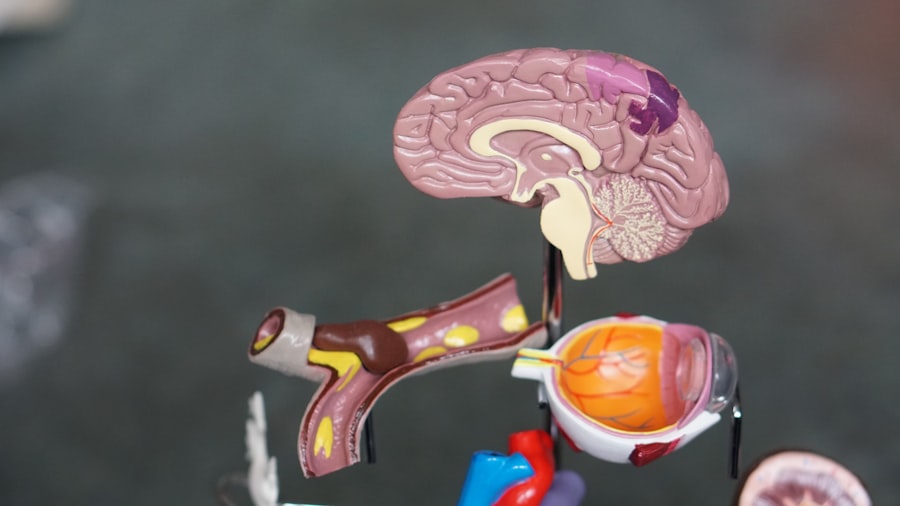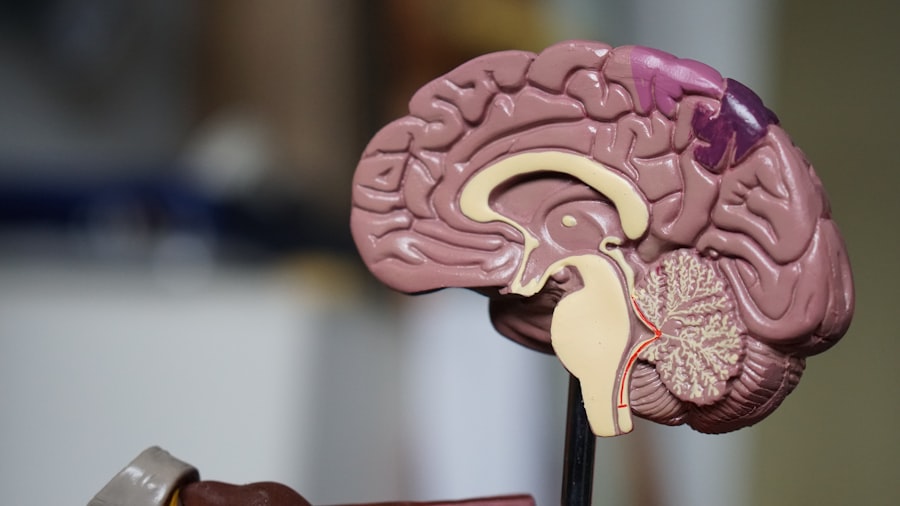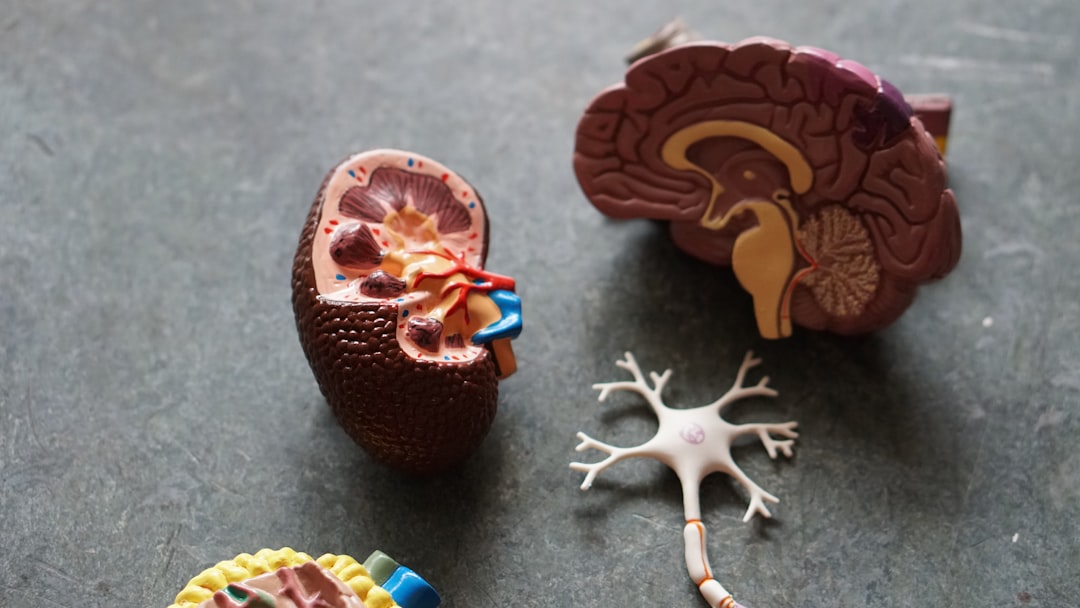As you navigate through life, you may have noticed that your memory isn’t as sharp as it once was. This decline can often be attributed to various factors, but one of the most significant influences is your diet. Research has increasingly shown that what you eat plays a crucial role in your cognitive health.
When you think about memory loss, it’s easy to overlook the impact of nutrition. However, studies suggest that a poor diet can lead to cognitive decline and even increase the risk of neurodegenerative diseases.
By understanding this link, you can take proactive steps to protect your brain health. A balanced diet rich in essential nutrients can help maintain and even enhance your memory, while a diet high in unhealthy fats and sugars can accelerate memory loss.
Key Takeaways
- A healthy diet can support cognitive function and help prevent memory loss.
- Nutrients like omega-3 fatty acids, antioxidants, and vitamins are crucial for brain health.
- Unhealthy diets high in sugar and processed foods can have a negative impact on memory.
- Foods like blueberries, fatty fish, and leafy greens can help boost memory and brain function.
- Staying hydrated and maintaining good gut health are important for optimal brain function and memory.
The Role of Nutrients in Brain Health
Nutrients are the building blocks of your body, and they play a vital role in maintaining brain health. Essential fatty acids, antioxidants, vitamins, and minerals all contribute to optimal cognitive function. For instance, omega-3 fatty acids found in fish are known to support brain structure and function, while antioxidants help combat oxidative stress that can damage brain cells.
By ensuring that your diet is rich in these nutrients, you can create a strong foundation for your cognitive abilities. Moreover, certain vitamins, such as B vitamins, are crucial for brain health. They help in the production of neurotransmitters, which are essential for communication between brain cells.
A deficiency in these vitamins can lead to cognitive impairments and memory issues. By incorporating a variety of nutrient-dense foods into your meals, you can provide your brain with the necessary tools to function at its best.
How a Healthy Diet Can Support Cognitive Function

A healthy diet is not just about avoiding unhealthy foods; it’s also about embracing those that promote cognitive function. When you prioritize whole foods—such as fruits, vegetables, whole grains, lean proteins, and healthy fats—you are giving your brain the nutrients it needs to thrive. These foods provide energy and support the complex biochemical processes that occur in your brain every day.
In addition to providing essential nutrients, a healthy diet can also improve blood flow to the brain. Foods rich in antioxidants and anti-inflammatory properties can help reduce inflammation and promote better circulation. This improved blood flow ensures that your brain receives adequate oxygen and nutrients, which are vital for maintaining cognitive function and memory retention.
The Impact of Unhealthy Diets on Memory
| Study | Findings |
|---|---|
| Research Study 1 | High sugar intake linked to impaired memory |
| Research Study 2 | Unhealthy diets associated with decreased cognitive function |
| Research Study 3 | Processed foods linked to poor memory performance |
On the flip side, an unhealthy diet can have detrimental effects on your memory and overall cognitive health. Diets high in saturated fats, trans fats, and refined sugars have been linked to increased inflammation and oxidative stress in the brain. These factors can lead to impaired cognitive function and memory loss over time.
If you find yourself frequently indulging in fast food or sugary snacks, it may be time to reconsider your dietary choices. Additionally, consuming excessive amounts of processed foods can disrupt the delicate balance of gut health, which is closely tied to brain function. The gut-brain connection is a growing area of research that highlights how an unhealthy diet can negatively impact your mental clarity and memory.
By recognizing the potential consequences of an unhealthy diet, you can make more informed choices that support your cognitive well-being.
Foods to Include in a Memory-Boosting Diet
To enhance your memory and cognitive function, consider incorporating specific foods into your diet that are known for their brain-boosting properties. Fatty fish like salmon and mackerel are excellent sources of omega-3 fatty acids, which are essential for brain health. Leafy greens such as spinach and kale are packed with vitamins and antioxidants that support cognitive function.
Berries are another fantastic addition to your memory-boosting diet. They are rich in flavonoids, which have been shown to improve communication between brain cells and enhance memory retention. Nuts and seeds, particularly walnuts and flaxseeds, provide healthy fats and vitamin E, both of which are beneficial for cognitive health.
By focusing on these nutrient-dense foods, you can create a diet that actively supports your memory.
The Importance of Hydration for Brain Function

While food plays a significant role in cognitive health, hydration is equally important for maintaining optimal brain function. Your brain is composed of approximately 75% water, and even mild dehydration can impair cognitive abilities such as attention, memory, and critical thinking skills. It’s essential to prioritize hydration throughout the day by drinking plenty of water and consuming hydrating foods like fruits and vegetables.
When you’re well-hydrated, your brain can operate at its peak performance level. Dehydration can lead to fatigue, confusion, and difficulty concentrating—all of which can negatively impact your memory. By making a conscious effort to stay hydrated, you can support your cognitive function and enhance your overall mental clarity.
The Connection Between Gut Health and Memory
The gut-brain connection is an emerging field of study that highlights the intricate relationship between your digestive system and brain health. Your gut houses trillions of bacteria that play a crucial role in digestion and overall health. These gut bacteria produce neurotransmitters and other compounds that influence mood and cognitive function.
Therefore, maintaining a healthy gut is essential for supporting memory and cognitive abilities. To promote gut health, focus on consuming probiotic-rich foods such as yogurt, kefir, sauerkraut, and kimchi. These foods contain beneficial bacteria that can help balance your gut microbiome.
Additionally, prebiotic foods like garlic, onions, and bananas provide nourishment for these beneficial bacteria. By fostering a healthy gut environment through your diet, you can positively impact your memory and cognitive function.
The Effects of Sugar and Processed Foods on Memory
Sugar and processed foods are often staples in modern diets but can have detrimental effects on memory and cognitive health. High sugar intake has been linked to inflammation in the brain, which can impair synaptic plasticity—the ability of neurons to strengthen or weaken over time based on activity levels. This impairment can lead to difficulties with learning and memory retention.
Processed foods often contain unhealthy fats, additives, and preservatives that can disrupt normal brain function. These substances may contribute to oxidative stress and inflammation, further exacerbating memory issues. By reducing your consumption of sugar-laden snacks and processed meals, you can protect your brain from potential harm and support better cognitive health.
Research on the Relationship Between Diet and Memory
Numerous studies have explored the relationship between diet and memory, providing compelling evidence for the impact of nutrition on cognitive health. Research has shown that diets rich in fruits, vegetables, whole grains, lean proteins, and healthy fats are associated with better cognitive performance and reduced risk of dementia. Conversely, diets high in saturated fats and sugars have been linked to increased cognitive decline.
One notable study found that individuals who adhered to a Mediterranean-style diet—characterized by high consumption of fruits, vegetables, fish, nuts, and olive oil—demonstrated better cognitive function compared to those who followed a Western-style diet high in processed foods. This research underscores the importance of dietary choices in maintaining memory health as you age.
Tips for Incorporating Memory-Boosting Foods into Your Diet
Incorporating memory-boosting foods into your diet doesn’t have to be overwhelming; small changes can make a significant difference over time. Start by adding a serving of berries to your breakfast or snacking on nuts instead of chips during the day. You might also consider swapping out red meat for fatty fish a few times a week to increase your omega-3 intake.
Meal planning is another effective strategy for ensuring you include nutrient-dense foods in your diet. Set aside time each week to plan meals that feature a variety of colorful fruits and vegetables alongside whole grains and lean proteins. By being intentional about your food choices, you can create a balanced diet that supports your memory and overall cognitive health.
The Potential of Diet as a Tool for Preventing and Reversing Memory Loss
As research continues to unveil the profound connection between diet and memory health, it becomes increasingly clear that dietary choices can serve as powerful tools for preventing or even reversing memory loss. By adopting a nutrient-rich diet focused on whole foods while minimizing processed options, you empower yourself to take control of your cognitive well-being. While genetics play a role in cognitive decline, lifestyle factors such as diet are within your control.
By prioritizing brain-healthy foods today, you not only enhance your current memory function but also lay the groundwork for long-term cognitive resilience. Embracing this knowledge allows you to make informed choices that could significantly impact your quality of life as you age. In conclusion, understanding the intricate relationship between diet and memory empowers you to make choices that support your cognitive health now and in the future.
By focusing on nutrient-dense foods while minimizing unhealthy options, you can create a lifestyle that promotes optimal brain function and enhances your overall well-being.
In exploring the potential of reversing memory loss through dietary changes, it’s essential to consider various factors that contribute to cognitive health. A related article on this topic can be found on Explore Senior Health, which delves into the impact of nutrition on brain function and memory retention. This article provides insights into specific foods and dietary patterns that may support cognitive health and potentially reverse memory decline.
